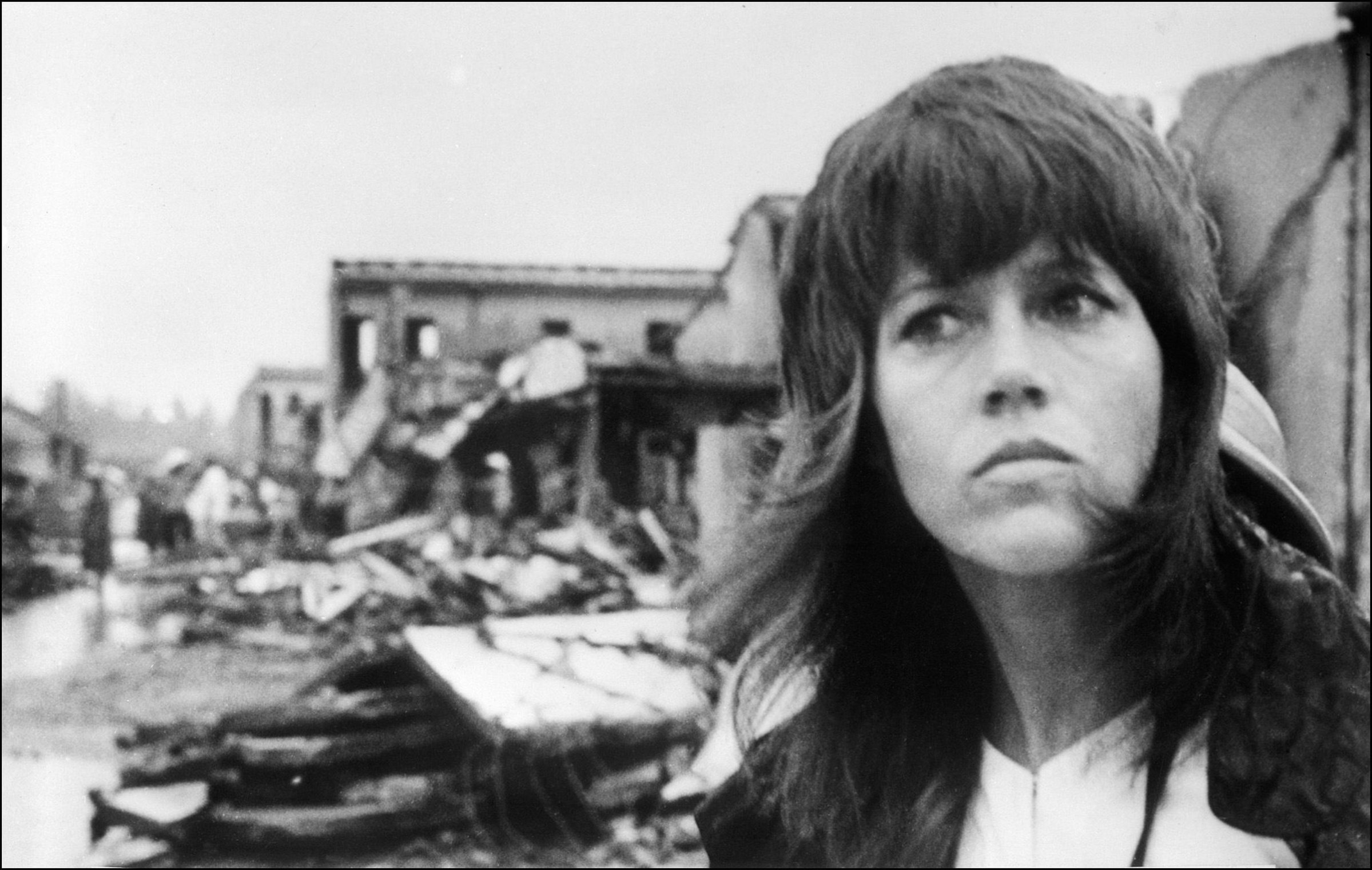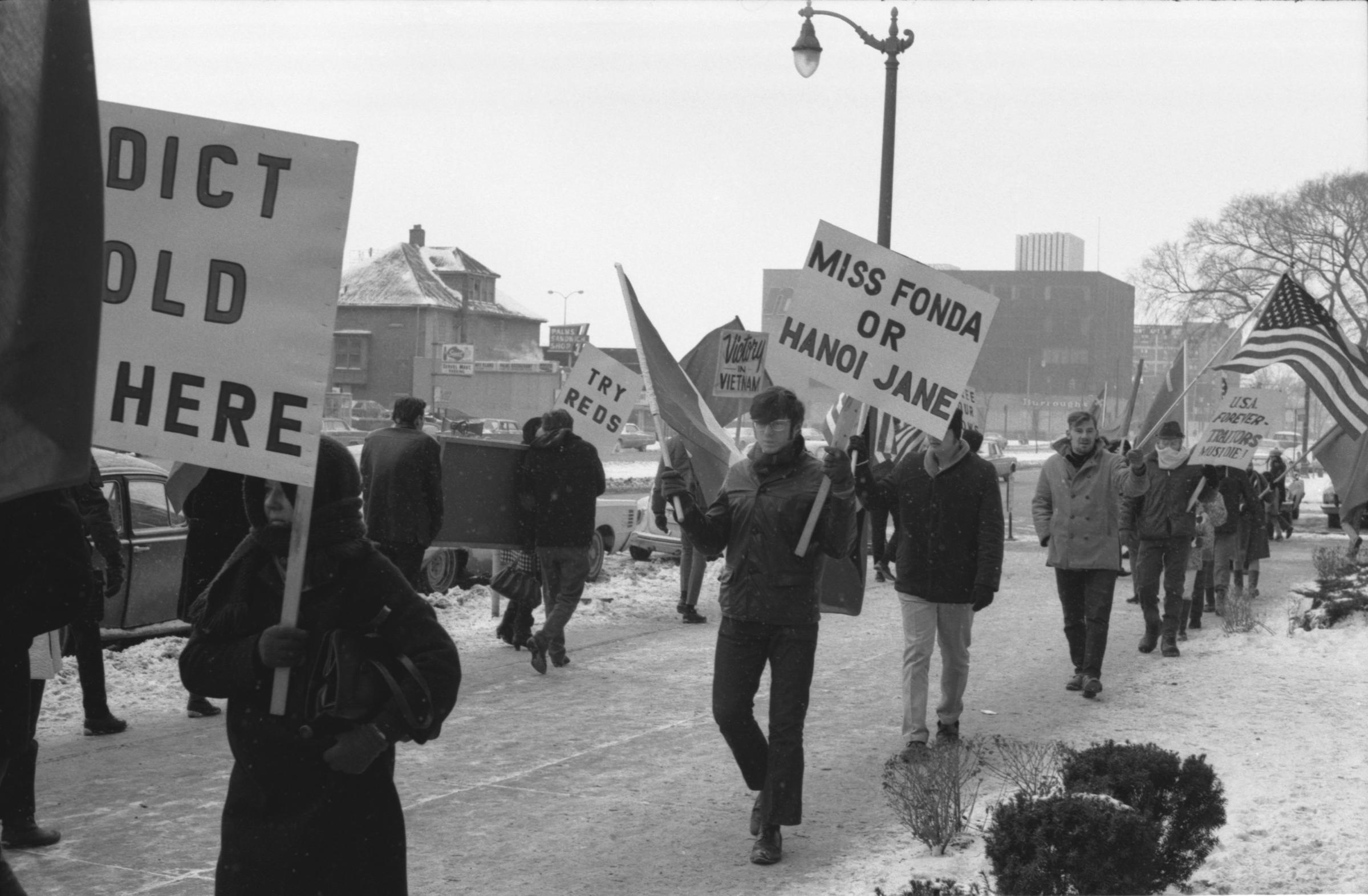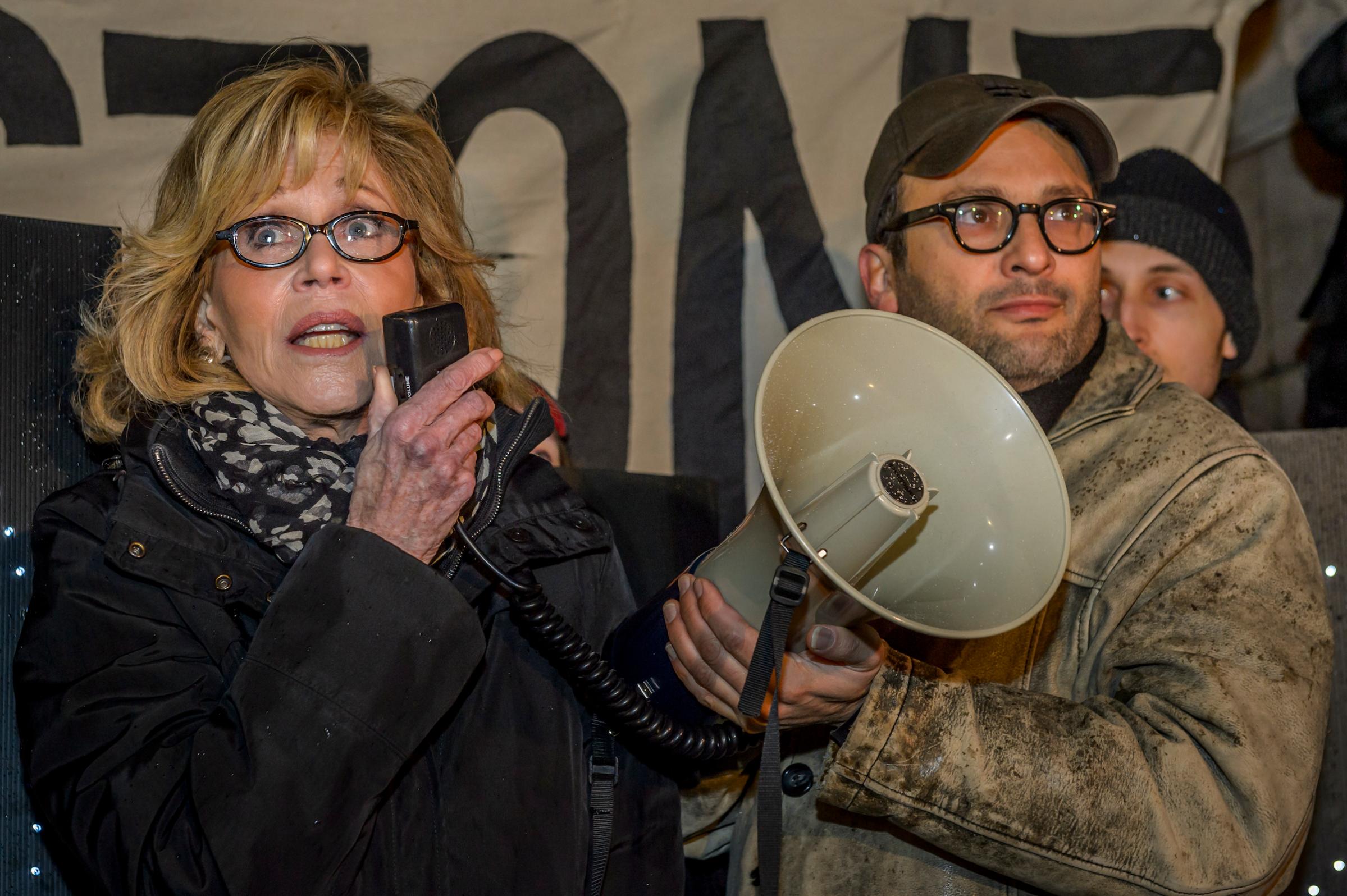
A new HBO documentary brings into focus the political activism of Jane Fonda, a woman who has succeeded many times in reinventing her life.
Jane Fonda in Five Acts, which premieres on HBO on Sept. 24, features Fonda, now 80, as she grows from a young actor on the fringes of 1960s intellectual and social movements, to a political activist in her own right, with the power to spark real anger even in the President of the United States himself. (Richard Nixon’s taped voice, disparaging Fonda, opens the movie.) The first four acts of the documentary are named for the men who exerted the most influence on Fonda’s life, starting with her father Henry Fonda and continuing through her three husbands: Roger Vadim, Tom Hayden and Ted Turner. The last act is named for Fonda.
From opposing the Vietnam War in the 1970s to being a vocal opponent of President Trump’s, Fonda has participated in some of the biggest activist movements of the last half-century of American history. And though she is best known for her controversial connection with the Vietnam War, she has extended her efforts to several other movements, including the fights for civil, women’s and environmental rights.
Here’s a look back at the actor’s life as activist:
Jane Fonda in the ’60s and ’70s
Fonda was pregnant and living in France in 1968, where she at first stayed on the outskirts of rising social and political movements. But the influx of news about the war in Vietnam and civil rights demonstrations in the U.S. inspired her to return home and dive into activism.
During this period, Fonda drew government surveillance for her support of the Black Panthers through fundraisers in her home. She also campaigned on behalf of revolutionaries such as Angela Davis, whom she visited in prison in 1971.
Fonda also lent her efforts to a variety of Native American causes. When activist Bernie Whitebear led a Native group to occupy Fort Lawton in Seattle in response to the declining state of reservations in 1970, Fonda showed up and helped him to bargain for their rights. She showed solidarity when young Native Americans occupied Alcatraz in San Francisco from 1969 to 1971 by visiting the protestors.
It was also around that time that Fonda became involved in the movement to end the war in Vietnam. By 1970, she had already been arrested once on suspicion of drug trafficking after returning to the U.S. from an anti-war speaking tour in Canada — her mugshot, in which she raises a fist, has become an iconic symbol for would-be renegades.
This movement would bring Fonda her most famous, and infamous, moment as an activist.
Jane Fonda and the Vietnam War
In 1972, Fonda toured North Vietnam, where she spoke against U.S. military policy in the country. Through a series of radio broadcasts, Fonda appealed directly to American troops, asking them to consider their roles in the war. A recording of one of her messages played in the documentary reveals she begged military pilots to seriously think about their orders, claiming that the U.S. was intentionally targeting the dike system in North Vietnam, a strategy that would have created a risk of flooding and famine for the residents there.
“If they told you the truth, of what your targets really are,” she said, “you wouldn’t fight, you wouldn’t kill. You were not born and brought up by your mothers to be killers. We must all try very, very hard to remain human beings.”
Washington disputed the charges and argued that it was already American policy to avoid harming civilians as much as possible, and such messages to the military did not win Fonda any friends in the government back home. But what shot her to infamy was an image that dogs her even now. During the tour, a photo was taken of Fonda sitting on an anti-aircraft gun in Hanoi, making it look as though she were aiming at American planes.
The waves of outrage the photo prompted have never fully subsided. She earned the nickname “Hanoi Jane,” and lawmakers at the time suggested her actions were treasonous and worthy of prosecution. To this day, the photo is brought up as a sign of Fonda’s perceived lack of patriotism — amid a dispute between Fonda and Megan Kelly earlier this year, the TV host attacked the actor for her past as a Vietnam War protester, saying she treated the military badly during the war.

Fonda has repeatedly apologized for the photo. In her 2005 book, My Life So Far, she takes responsibility for what happened, saying she didn’t think about where she was sitting and how it would look until after the picture had already been taken. “It was my mistake, and I have paid and continue to pay a heavy price for it,” she writes.
But the notorious picture was only one part of the work Fonda did for the anti-war cause. Footage in the documentary shows her meeting with prisoners of war, leading protests and speaking out against Nixon.
“It was a very tumultuous and polarized time,” she says. “There was a lot of anger and blame. For myself, I didn’t always know how to channel my anger in constructive ways.”
The Actor’s Activism
Apart from doing the work of a traditional protester, Fonda used her position as a performer to channel her rage into film during the late 1970s and early 1980s. Inspired by meeting Ron Kovic, a Vietnam War veteran who later became an anti-war crusader, and her work with other war veterans, Fonda made the movie Coming Home, about a woman, a wounded war veteran she meets and her husband, who is in the Marines.
“The studios didn’t want to make a film about the war,” she says in the documentary. “It took six years until we finally could get it made.”
Fonda was also behind the film China Syndrome, in which she played a reporter who discovers that a nuclear power plant is masking safety hazards. Shortly after the film was released in 1979, the Three Mile Island nuclear accident occurred, showing the real-world implications of the subject of the film. Fonda further attempted to affect change with the movie 9 to 5, which she says she made for working women everywhere.
“We dealt with all the issues — sexual harassment, unequal pay, the importance of flex hours, the importance of childcare,” Fonda says in the documentary.
Even Fonda’s love of exercise made it into her activism. By the early 1980s, she was deep in the throes of organizing, along with her then-husband Tom Hayden, a prominent writer and activist. Hayden, who was trying to win a local election, had founded a leftist organization, the Campaign for Economic Democracy, and it needed money. Thus was born Jane Fonda’s Workout, a massively successful home video that essentially funded Hayden’s organization.
Jane Fonda’s Recent Activism
In 2016, as thousands of people gathered for months to protest the building of the Dakota Access Pipeline at Standing Rock, Fonda spent her Thanksgiving alongside the protesters. In a piece for TIME, she spoke of how that recent protest is a reminder that activism takes place within the context of work that has come before:
It has been 45 years since the Occupation of Alcatraz. At Standing Rock we are witnessing the flowering of the seeds that were planted there and, again, it is the youth who seem to be leading the way.

While Fonda’s acting career has taken several turns throughout her life, her desire to effect change has remained. As her son, Troy Garity, says in the documentary’s final act: “She won’t stop. She’s on a mission. This intent to do well keeps her demons at bay.”
More Must-Reads From TIME
- The 100 Most Influential People of 2024
- The Revolution of Yulia Navalnaya
- 6 Compliments That Land Every Time
- What's the Deal With the Bitcoin Halving?
- If You're Dating Right Now , You're Brave: Column
- The AI That Could Heal a Divided Internet
- Fallout Is a Brilliant Model for the Future of Video Game Adaptations
- Want Weekly Recs on What to Watch, Read, and More? Sign Up for Worth Your Time
Write to Mahita Gajanan at mahita.gajanan@time.com